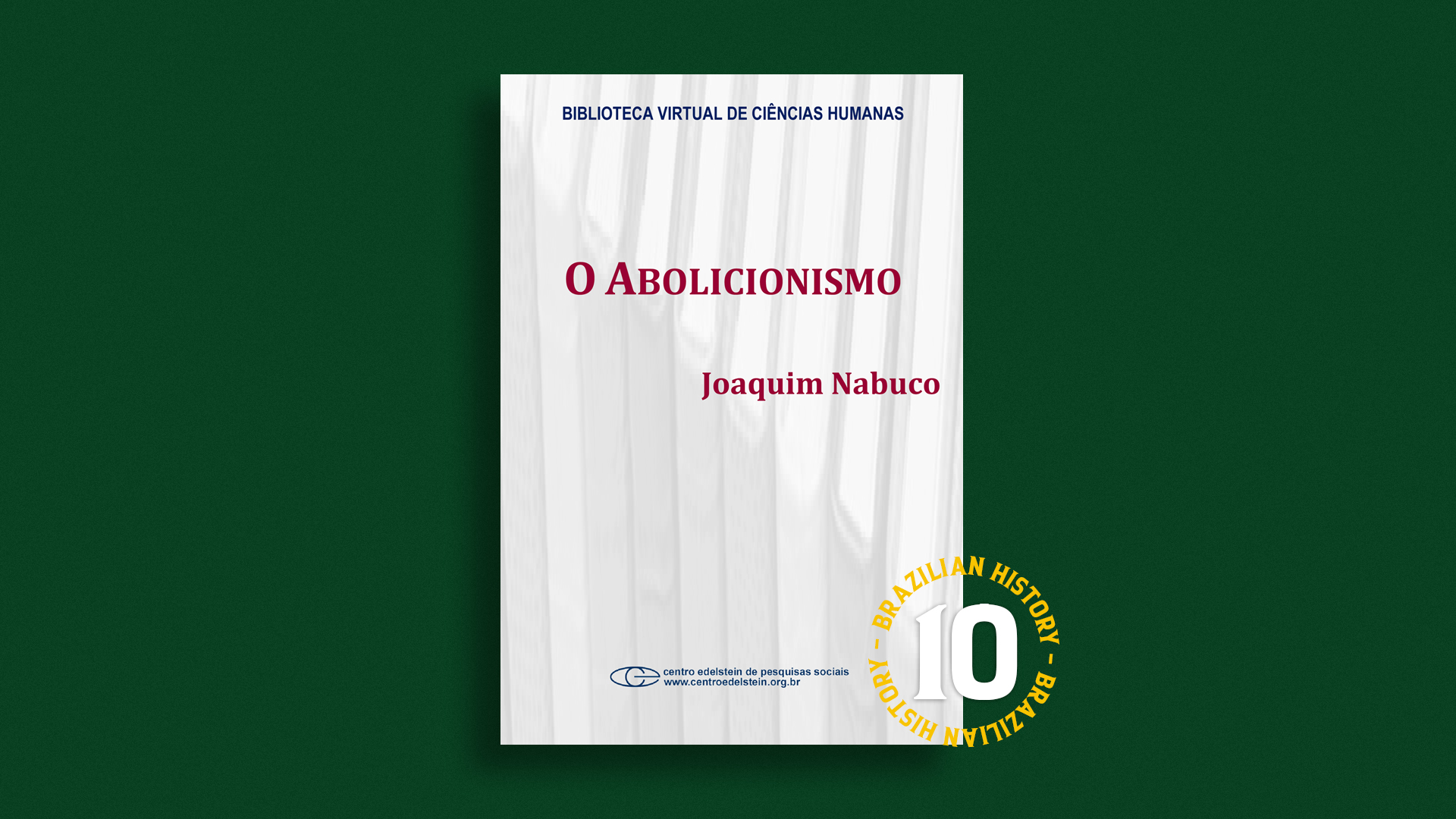The book The Abolitionism, authored by Joaquim Nabuco, was completed in 1883, during the period when several laws were in effect to restrict slavery within the national territory. However, it was still five years before the total abolition of slavery. It is an integral part of the abolitionist campaign, of which Nabuco was perhaps the foremost white advocate for decades. The book holds immeasurable value in understanding the lengthy historical, economic, and political process that eventually led to the end of slavery, as well as the resistance and vested interests at play in the second half of the 19th century.

In this book, Joaquim Nabuco emphasizes the significance of individual freedom, which was usurped by slavery, and highlights the Catholic Church’s inefficiency in combating slavery. He reveals that the Church did nothing to prevent the numerous slave auctions taking place within the national territory or the religious regime in the slave quarters, despite wielding immense power in a country still largely influenced by religious fanaticism. The Abolitionism provides a detailed account of the end of slavery in England and the United States of America, showcasing Joaquim Nabuco’s desire to rebuild Brazil based on free labor and the unity of races in freedom.
The black race played an astounding role in the construction of Brazil, a fact made evident in The Abolitionism. We can witness how the Postal Service, Hospitals, Masters’ Houses, Churches, and Schools relied on the black race for their existence. Nabuco strongly emphasizes that the abolitionist movement did not support a civil war for such changes, as was the case in the United States. One notable mention in Nabuco’s book is the liberation of slaves in Paraguay by Count d’Eu at the end of the Paraguayan War, which reinforces the idea that the imperial family was staunchly opposed to slavery. Nabuco explicitly cites Dom Pedro II, stating that if it were up to him, slavery would have ended long before.
Joaquim Nabuco declares himself a liberal in his book; however, I see many conservatives with YouTube channels, blogs, and social media pages claiming that he was a conservative, but that is nothing more than a fallacy. I prefer to believe what Joaquim Nabuco wrote rather than what others say, and I highly recommend his book called My Formation, where his liberal stance becomes even clearer.
In The Abolitionism, it is evident that Joaquim Nabuco was uncomfortable with gradual emancipation, but he urges slaves to trust the process and states that it could bear fruit in the future.
The Abolitionism is a book with a slow-paced reading due to its elaborate Portuguese and may require repetitions, but it is highly recommended for those who wish to delve deeper into the abolition of slavery, national identity, and, of course, the magnificent mind of Joaquim Nabuco. It is an incredibly focused and meticulous book that clearly provides the answers we seek regarding the movement.
Reference: NABUCO, Joaquim. O Abolicionismo. Brazil: SciELO – Edelstein Center, 2011.

Matheus Araújo
Matheus Araújo is the founder and editor of Brazilian History. Born in Rio de Janeiro and holding a degree in Advertising and Marketing, his passion for history led him to enroll at the Federal University of the State of Rio de Janeiro, where he is currently pursuing a degree in History Education.
